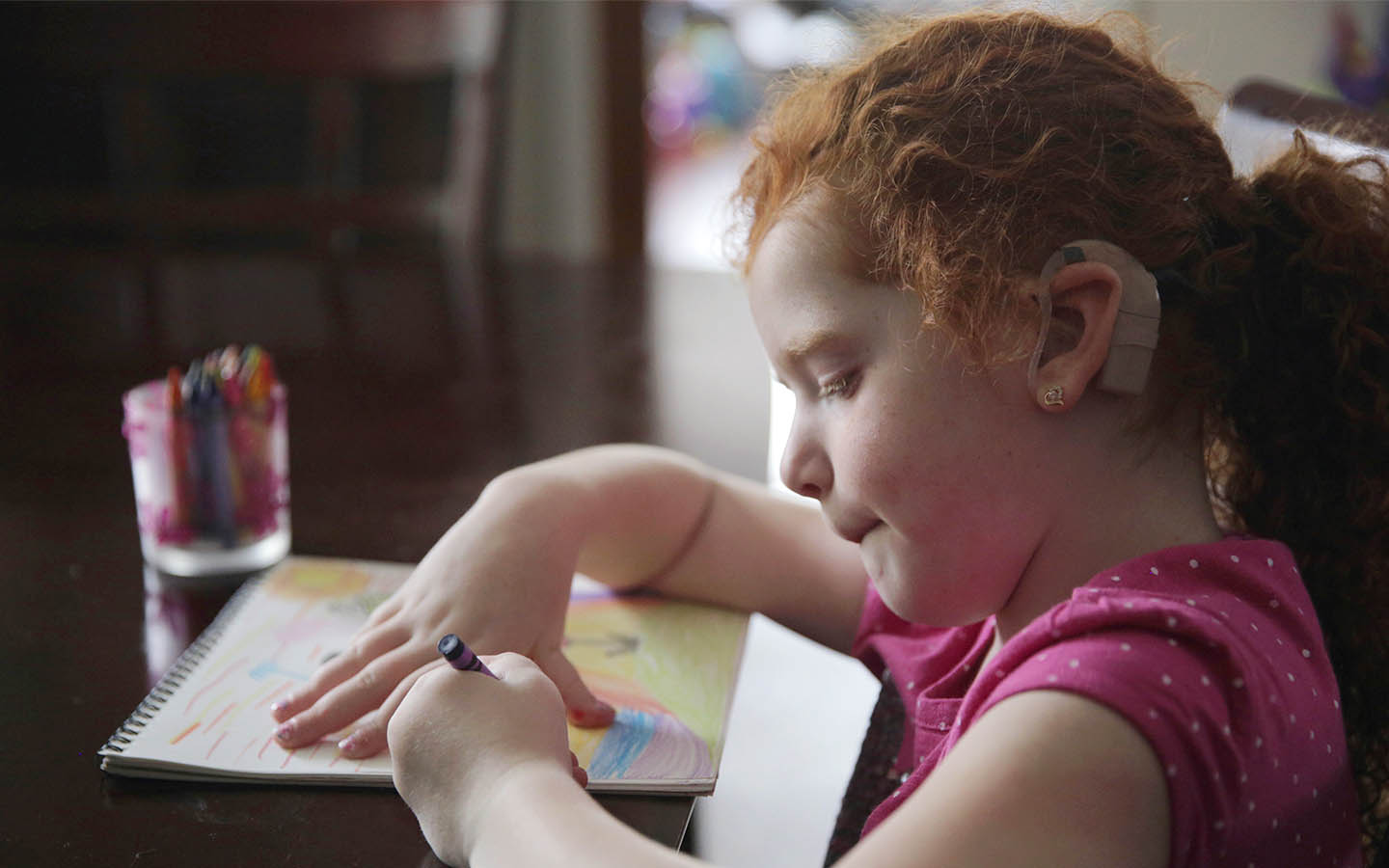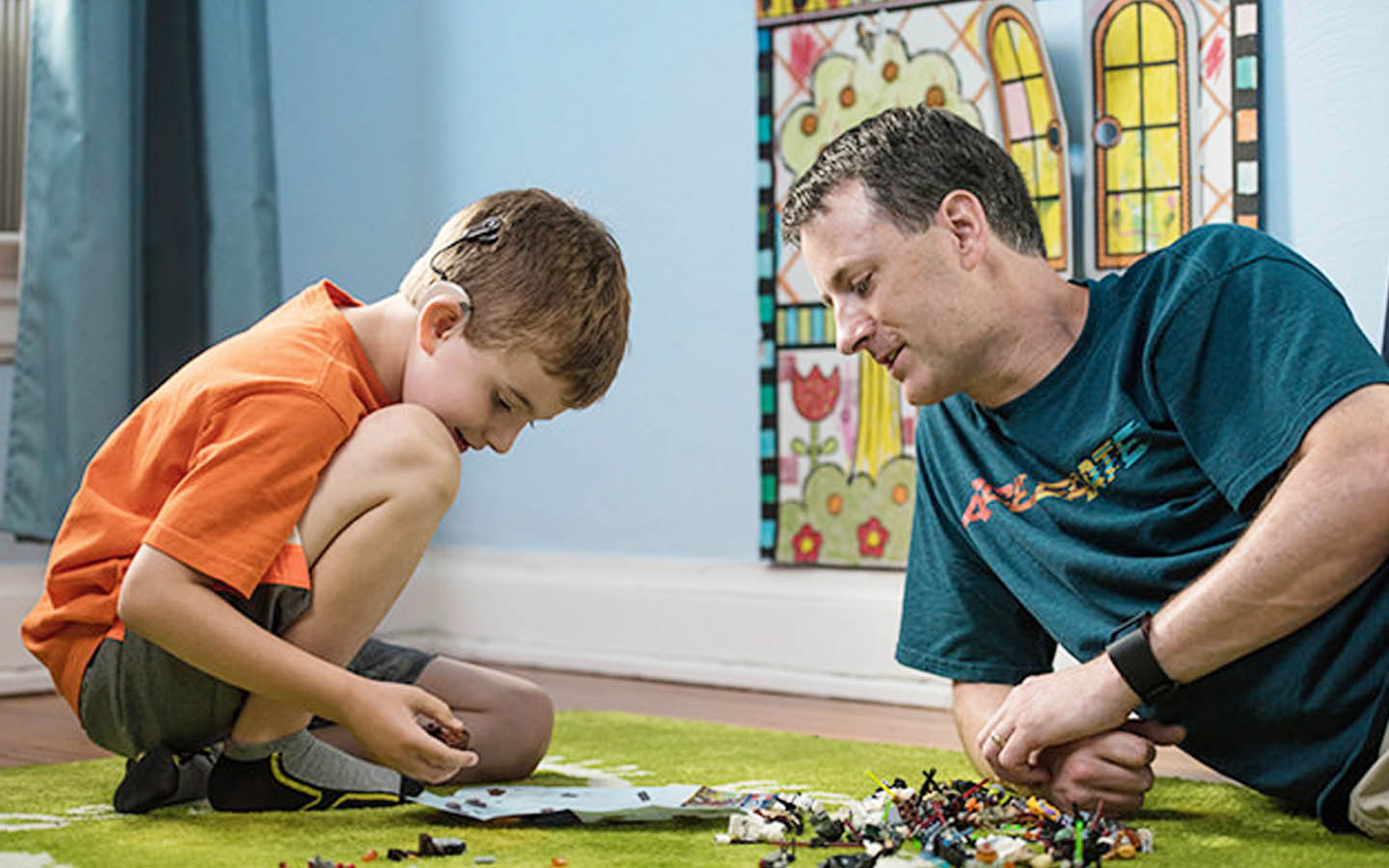Signs of hearing loss in children
Do you think your child may have hearing loss? Here are the signs to look out for.

What you'll find on this page
- Discover the signs of hearing loss in children
- Understand key milestones for learning to listen and speak
- Learn what to do if your child has hearing loss
The signs of hearing loss aren’t always obvious. Here are some of the things to look out for, plus a guide to hearing and speech development in young children.
“The day care mom would say, ‘I don’t know if she can hear me.’ Then my husband and I started watching for signs. We thought, maybe she has a little hearing deficit. We went to many doctors and also ENTs who basically either said, ‘It’s water,’ ‘It’s behavior’ or ‘Lots of kids don’t talk until later.’”
- Parents of Abigail M. - Nucleus® recipient
As Abigail's parents found, you may not know if your child has hearing loss – especially if they haven’t started talking yet. That's why it's important to understand the signs and symptoms now, so you can be prepared to take action if needed.
Some possible signs of hearing loss in an infant or toddler
- Does not react to loud sounds
- Does not seek out or detect where sound is coming from
- Has stopped babbling and experimenting with making sounds
- Still babbles but is not moving to more understandable speech
- Does not react to voices, even when being held
- Ear is missing or malformed at birth
Ages and stages that children typically learn to listen and speak1
Understanding hearing and speech development milestones can be helpful. Use these guidelines to better understand your child's progress:
|
Age |
Hearing and understanding |
Speech and language |
|---|---|---|
|
Birth to three months |
|
|
|
4-6 months |
|
|
|
7 months-1 year |
|
|
|
1-2 years |
|
|
Remember that some children with normal hearing may reach those milestones later. If you have any concerns, you should speak to your child’s health care professional as soon as possible.
Some possible signs of hearing loss in a school-age child
- Does not follow simple commands, such as “get your shoes,” or understand simple directions
- Is easily frustrated or experiences communication breakdowns
- Is falling behind with speech and communication skills
- Cannot understand what you are saying unless they are looking directly at you
- Cannot identify where sounds are coming from
- Is exhausted at the end of school from concentrating to understand speech
- Shows signs of behavioral problems or social difficulties
- Experiences problems keeping up at school or grades slipping
What to do if you think your child has hearing loss
Get their hearing tested by a hearing health professional who specializes in all types of hearing solutions, including hearing implants. Even if traditional hearing aids can’t help your child, they may benefit from other hearing solutions, such as cochlear implants and bone conduction implants.
Find a Hearing Implant Specialist near you
Disclaimer
Please seek advice from your health professional about treatments for hearing loss. Outcomes may vary, and your health professional will advise you about the factors which could affect your outcome. Always read the instructions for use. Not all products are available in all countries. Please contact your local Cochlear representative for product information.
Views expressed are those of the individual. Consult your health professional to determine if you are a candidate for Cochlear technology.
For a full list of Cochlear’s trademarks, please visit our Terms of Use page.
References
- Speech and Language Developmental Milestones [Internet]. NIDCD. 2018 [cited 13 September 2018]. Available from: https://www.nidcd.nih.gov/health/speech-and-language





